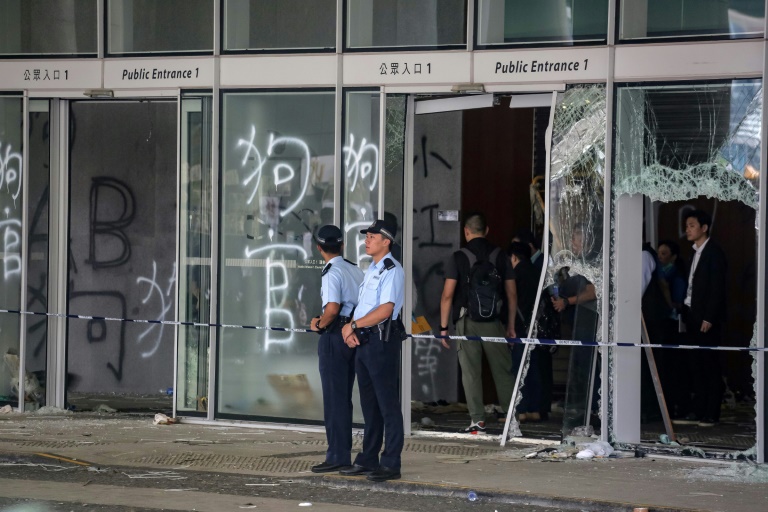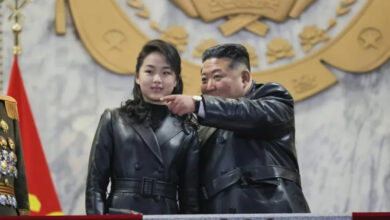
Hong Kong authorities on Wednesday vowed to hunt down the protesters who ransacked parliament in an unprecedented challenge to the Beijing-backed government, as the city grapples with its biggest political crisis in decades.
The semi-autonomous city has been shaken by massive anti-government demonstrations since last month, sparked by a law that would have allowed extraditions to the mainland.
The anger spilled over on Monday as groups of mostly young, hardline protesters — who have demanded the resignation of the city’s leader Carrie Lam and the cancellation of the bill — stormed Hong Kong’s Legislative Council.
They used a makeshift battering ram to smash their way in, and then sprayed graffiti on the walls of its main chamber and defaced the city’s seal.
Investigators continued to gather evidence from the damaged building on Wednesday, the police department said in a statement posted on its social media accounts, adding that it will “bring the culprits to justice for any unlawful acts”.
The escalation on Monday was the latest, and most serious, in a number of tense face-offs — some violent — between protesters and authorities since the pro-democracy campaign began.
Two days later, the damage was still visible.
Most of the graffiti remained on the walls, including slogans like “HK not China”. Some graffiti had been tagged with numbers.
Some placards placed by protesters in the legislature’s main chamber had been removed, an AFP journalist saw during a guided tour of the building by the authorities.
Shattered glass was still strewn across the floor near panels that the protesters smashed to make their way inside and some security cameras dangled from the ceilings and walls on wires — apparently pulled out.
In one of the building’s main security offices, desks were tipped over and computer screens were thrown on the floor, which was strewn with documents and paper.
Makeshift barricades made from metal railings — which protesters have used to protect themselves — were still there in some corridors.
Lam, the Hong Kong chief executive, has vowed to carry on, and while she has said the controversial extradition legislation is suspended, it has failed to quell anger.
Police officers doxxed
Earlier Wednesday, police announced that eight people — six men and two women, aged 16-40 — had been arrested for allegedly “doxxing” officers, launching cyberattacks on police websites and inciting others to “commit damage”.
Doxxing is the online release of personal data stolen from targets, often to shame or incite harassment against them.
The alleged crimes “affected a large number of officers, resulting not only in nuisance but threats”, Hong Kong police official Swalikh Mohammed told a press conference, adding that some officers and their family members received death threats.
He did not offer further details.
Mohammed said that there were also failed attempts to take down police websites with Distributed Denial of Service (DDoS) attacks, which involve overwhelming servers with a massive amount of junk requests.
Allegations against the police of excessive force and unlawful tactics against protesters have fueled public anger in recent weeks, and many protest groups have demanded an investigation into how the force handled the demonstrations — the biggest wave of opposition against Beijing and the Hong Kong government since Britain returned the city to China in 1997.
Image: AFP/File / Vivek PRAKASH Two days after protesters stormed Hong Kong’s parliament, the damage remains visible




